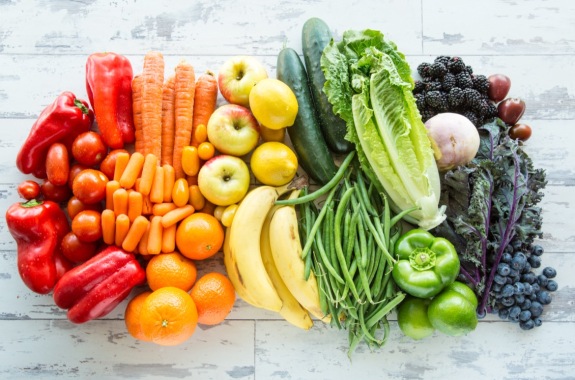Currently Empty: د.إ0.00
A Healthy Guide to Good Nutrition
Whether you are at your ideal weight or striving to reach your weight goal is it simply a matter of burning more calories than you take in? The answer, I suggest, is no! Overall body health improvement, as well as weight gain or loss, must be factored into the equation or you could be heading for problems. Correct nutrition can help to reduce the risk of a miriad of health-related problems, the most frightening of which are surely heart disease and cancer. Proper nutrition, for sure the good way of nutrition will affect your diet. Good diets offer balanced nutrition that reduces cholesterol, blood pressure, and helps with weight control.
To function properly, your body must have the correct combination of nutrients and vitamins
“ Eat fruits and vegetables the way nature provided—or with fat-free or low-fat cooking techniques.
Try steaming your vegetables, using low-calorie or low-fat dressings, and using herbs and spices to add flavor. Some cooking techniques, such as breading and frying, or using high-fat dressings or sauces will greatly increase the calories and fat in the dish. And eat your fruit raw to enjoy its natural sweetness.” _ Steven Jobs
Fruit and vegetables and protection against diseases
Dolor sit amet, consectetur adipisicing elit, sed do eiusmod tempor incididunt ut labore et dolore magna aliqua. Ut enim ad minim veniam, quis nostrud exercitation ullamco laboris nisi ut aliquip ex ea commodo consequat. Duis aute irure dolor in reprehenderit in voluptate velit esse cillum dolore eu fugiat nulla pariatur. Excepteur sint occaecat cupidatat non proident.

Carbohydrates.
They are the primary source of ammunition in your diet. The body uses carbohydrates to build glucose which can be used immediately or stored in your body for later. Too much glucose, however, is stored as fat. There are two types of carbohydrates – simple and complex. Sugars are simple carbohydrates. Starches and fibres are complex carbohydrates.
Proteins
Proteins help your body build and maintain muscles and other tissues. They also function in the creation of hormones. Like carbohydrates, excess protein is stored as fat Animal and vegetables are the two major types of proteins. Too much animal protein can cause high cholesterol, as it is high in saturated fat.
Fat.
Strange as it may seem; fat is another nutrient your body requires. It comes in both saturated and unsaturated forms. Saturated fat puts you at risk of health problems. Unsaturated fat is healthy, but if it goes through any type of refinement process, it can become saturated fat.
Vitamins
These are also required nutrients. Different vitamins perform different tasks within the body. They can work with the metabolism to help with energy levels for any task you can think of that you need your body to perform. It has also been noted that certain vitamins can prevent disease.
For example, vitamins A, C, and E, also called antioxidants, can assist with the prevention of coronary artery disease by keeping buildup from occurring on artery walls. Vitamin B-1 is needed for digestion and proper nervous system function. Vitamin B-2 is needed for normal cell growth. Vitamin B-3 helps to detoxify your body. Folic acid assists with the production of red blood cells. Vitamin D assists with the absorption of calcium. Vitamin K helps your blood clot.
Minerals and trace elements.
These are other nutrients your body requires. Both are used in many different body processes. Minerals like chlorine help make your digestive juices. Phosphorus helps build strong bones. Both can be found in the foods we consume, but with a trace element, your body just needs a tiny amount. Salt is one final nutrient your body requires. You should not consume more than 2400 milligrams per day, though, as it might raise your blood pressure.
You should follow several guidelines to create a well balanced, nutritional diet. First, try to consume two and one-half cups of vegetables and two cups of fruit each day. When making your selections for each day, be sure to choose a good variety. A good rough guide is to eat as many different colours as possible, this will help you to select from all five vegetable subgroups at least four times per week.
You should eat at least three ounces of whole-grain products each day. At least half of your grain intake should be whole grain-based. Milk should also be part of a healthy diet. Consume at least forty-eight ounces of low-fat milk or milk products on a daily basis. Your total fat intake should only be between ten and thirty percent of your calories. Most of the fats you consume should be in the form of unsaturated fats, as saturated fats can do much to damage your health. Meat, poultry, dry beans, and milk or milk products should all be lean, low-fat, or fat-free. Less than ten percent of your calories should come from saturated fats, and you should always try to avoid trans-fatty acid.
Fibre-rich fruits, vegetables and whole grains should be a regular part of your diet as should potassium-rich foods.







Very good https://lc.cx/xjXBQT
Awesome https://rb.gy/4gq2o4
Good https://is.gd/N1ikS2
Awesome https://is.gd/N1ikS2
Good https://is.gd/N1ikS2